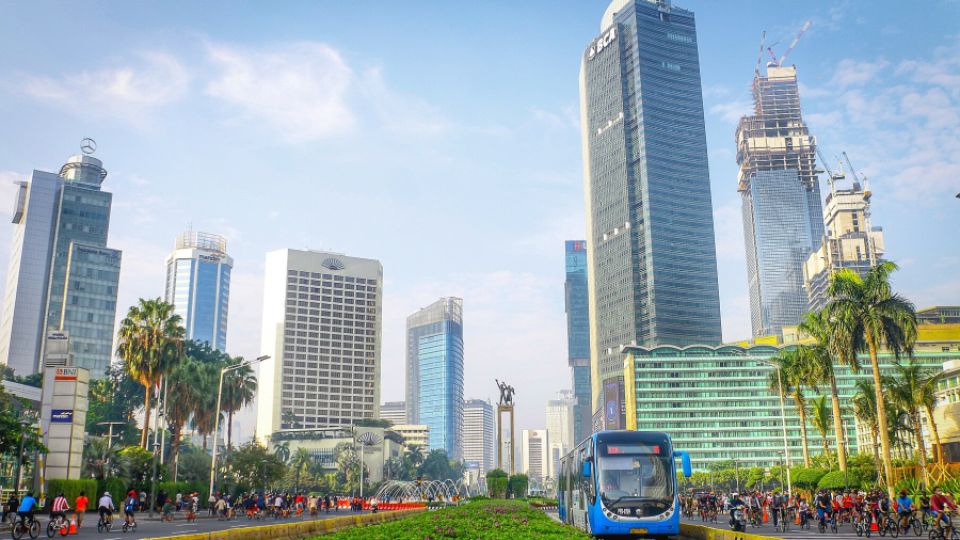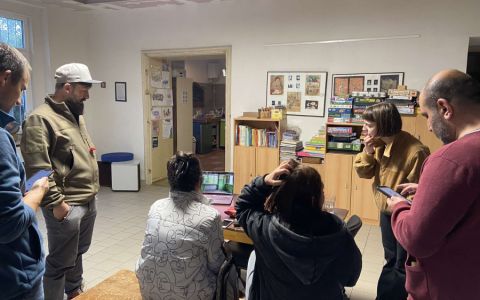The Indonesian government and authorities must address the choking pollution in the capital. This is the conclusion of a successful lawsuit by Jakarta residents and a local initiative, Koalisi Ibu Kota, which the government has been trying to fight in court for over two years. The objections and appeals have now been rejected by Indonesia's Supreme Court.
Citizens have accused government officials and authorities of being lax in dealing with Jakarta's long-term appalling air quality. This has been blamed for reducing the average life expectancy of residents by up to 2.5 years, widespread economic damage, and a range of health problems that result in the premature deaths of thousands of people each year. The metropolitan area is home to a total of 10.5 million people, and up to two and a half times as many in the greater metropolitan area.
Among other things, the plaintiffs are demanding that the government set adequate limits for PM 2.5 - the tiny particles that make up typical urban smog and can penetrate into lungs, causing conditions ranging from asthma to heart disease. Current levels in Jakarta's air exceed international recommendations from the World Health Organization many times over. This is largely due to traffic and industrial activity around the city.
The lawsuit was essentially unprecedented in Indonesia in that it held leaders directly liable. Citizens sued not only regional leaders, but also President Joko Widodo and the ministers of environment and health. This was reflected in the length of the first-instance proceedings. The Jakarta District Court considered the case for two years and postponed the verdict eight times before giving the civic coalition the benefit of the doubt in September 2021.
The judges confirmed that politicians had broken the law by ignoring the city's dire air quality. They ordered them not only to tighten environmental regulations, but also to coordinate the reduction of harmful emissions in several neighboring regions and to continue research into the specific health effects of Jakarta's smog. While the ruling did not accept the plaintiffs' claim that officials had directly violated their fundamental right to a non-threatening environment, it nonetheless sparked enthusiasm among environmental organizations.
"Healthy air is a basic human right. We hope that the Indonesian government will do its job as ordered by the court and fulfill its duty to prevent its citizens from being exposed to toxic substances. However, the key to achieving clean air is in monitoring and inventorying pollution sources," said Yuyun Ismawati of Nexus3, an environmental organization with which Arnika has long worked in Indonesia.
The government has appealed several times, but to no avail: on November 13, the Supreme Court finally rejected the appeal of President Widodo and three ministers, confirming that they will not escape liability in court.
How the Czech experience can help Indonesia
One of the court's instructions to the government was to strengthen the monitoring systems of which Ismawati spoke. After all, if you want to do something about pollution, you need to know its extent and sources. In many countries around the world, PRTRs, or Pollutant Release and Transfer Registries, are used to track such data. But Indonesia is still waiting for its centralized and transparent registry. That is why Arnika is continuously sharing experiences from the Czech good practice example.
The Integrated Pollution Register (Integrovaný registr znečištění, IRZ in Czech), which will celebrate its 20th anniversary in April 2024, serves us domestically. The IRZ has its limitations - for example, it does not track some hazardous chemicals and is not particularly easy to understand for inexperienced users - but it is still an important source of data, especially when it is made available to citizens by non-governmental actors.
Arnika runs a web application Znečišťovatelé pod lupou (Polluters under the Magnifier), which allows anyone to see who is emitting what in the area, but also to find out which substances are dangerous. The IRZ data has long been used by journalists, but it has also led to successful citizen campaigns demanding that certain companies stop using toxic formaldehyde, for example, when there is an alternative.
Despite various attempts by industry to curtail the register, the IRZ remains an indispensable tool for ensuring the public's right to access information on environmental quality. Our experience with it is one of the reasons why, in addition to Indonesia, we have advocated for national pollution registers in our work in Thailand, Ukraine, Kazakhstan, and Bosnia and Herzegovina.








